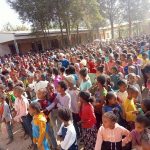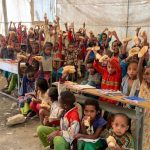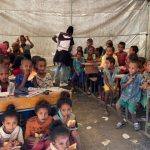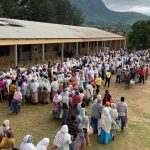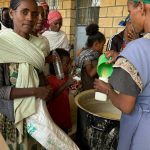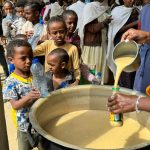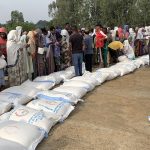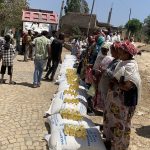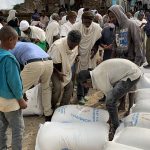The Tigray region in Northern Ethiopia is currently experiencing a major humanitarian crisis, with a recent report from Channel 4 describing the situation as a “deadly combination of war and drought.” The conflict between the Federal Democratic Government of Ethiopia and the Tigray People’s Liberation Front that began on November 4, 2020, has had a devastating impact on the civilian population in the region, and their suffering has only increased with the recent drought.
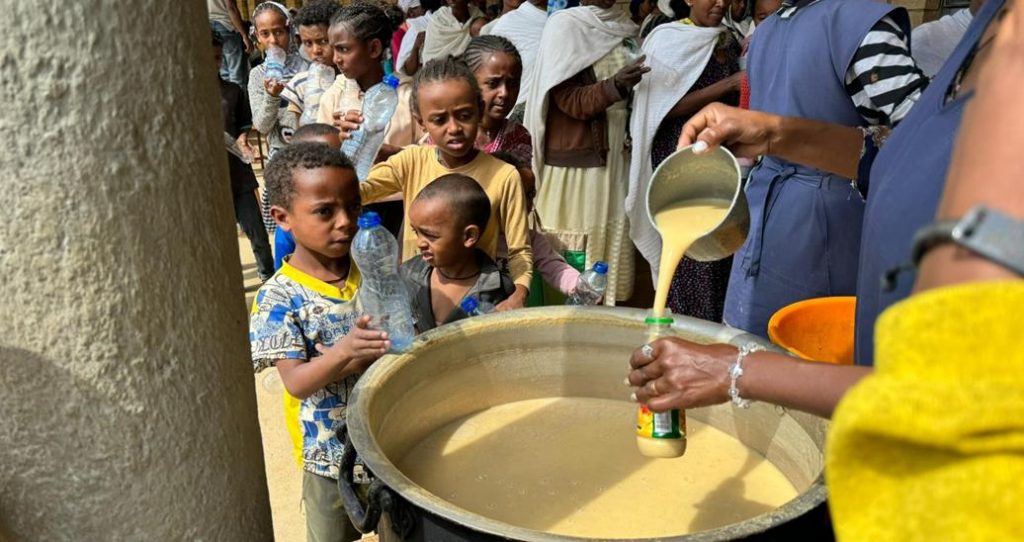
The conflict has displaced 1.8 million people and left 5.2 million people in a state of serious vulnerability. Prolonged deprivation, including scarcity of basic goods, limited access to medical care, blocked telecommunications, and disrupted banking systems, has created a significant humanitarian crisis. In the village of Tseykeme, most families had their homes looted by soldiers, who took grain, animals, and farming tools. They also sometimes burned what they could not carry, leaving the villagers struggling to survive.
In November 2022, the Ethiopian Government and the Tigray People’s Liberation Front signed a peace agreement to end the two-year conflict. The agreement aimed to protect human rights, restore public services, ensure humanitarian supplies, and facilitate the return of internally displaced people and refugees. However, despite the peace agreement, humanitarian crises persisted in Tigray, with a severe drought worsening the situation. The interim Government of Tigray declared a state of emergency in the region, highlighting the urgent need for international assistance to address the dire humanitarian situation. They have reported that the death toll has already exceeded 400, including 25 children.
The situation is so severe that over 90% of the Tigray region’s population is dependent on food assistance. Many experts argue that the current famine crisis in the region is even worse than the infamous famine of 1984-85, when considerable international assistance was provided, and countless lives were saved.
The crisis is weighing heavily on families. Hareya Berihu, a mother in Tigray, told BBC News of her concerns for her children: “I can’t be at peace because I know they are hungry”. Children’s education is also being severely impacted by the famine, with many children dropping out of school. Yemane Teklay, a head teacher in Tigray, explains how difficult the learning process is for the children who still come to school: “Their behaviour in class shows how hungry they are. They can’t understand even if you repeat a lesson three or four times. They just think of what to eat”.
Salesians of Don Bosco in Tigray
The Salesians of Don Bosco have been present in Tigray, Ethiopia since 1975. The mission was started by three pioneer Salesian missionaries: one from Italy, one from the USA and one from Ireland. Fr Patrick Morrin, an Irish Salesian, passed away in 1977 in Mekelle, Tigray, while serving the poor and underprivileged.
In 1984, the Salesians of Don Bosco responded to a famine that shocked the world. The Salesians played a significant role in providing relief efforts and humanitarian aid to the affected population. They worked tirelessly to distribute food supplies and essential items to those facing starvation and malnutrition. Currently, the Salesians have four communities in Mekelle, Adigrat, Adwa, and Shire. Their primary focus is providing education for disadvantaged youth. They run two professional technical colleges, one academic school, and engage in social work and other short-term projects.
History Repeating Itself for the Salesians in Tigray
During the war in the last three years, the Salesian communities endured a complete siege and blockade, which isolated them from the rest of the world, their families, and their congregation. Despite facing this hardship, they managed to persevere and demonstrated their love for the people of Tigray by being willing to sacrifice their lives and suffering with the people. As soon as humanitarian channels opened, the Salesians collaborated with other international humanitarian organisations to provide immediate assistance to starving and internally displaced people and children. They established feeding centres by converting schools for this purpose.
The Salesians of Don Bosco have issued an urgent appeal for food aid to support the affected people. The Salesians are calling for support from individuals, corporations, and other humanitarian agencies to provide essential food supplies to those most in need, particularly vulnerable groups such as the elderly and children. The goal of this appeal is to ensure that no one in Tigray dies out of hunger during this crisis.
The famine outbreak in Tigray demands immediate attention and action from the global community and individuals moved by compassion. The emergency appeal by the Salesians of Don Bosco underscores the urgency of providing food assistance for those affected by the crisis. By coming together and offering support, we can help alleviate hunger and save lives in Tigray.

